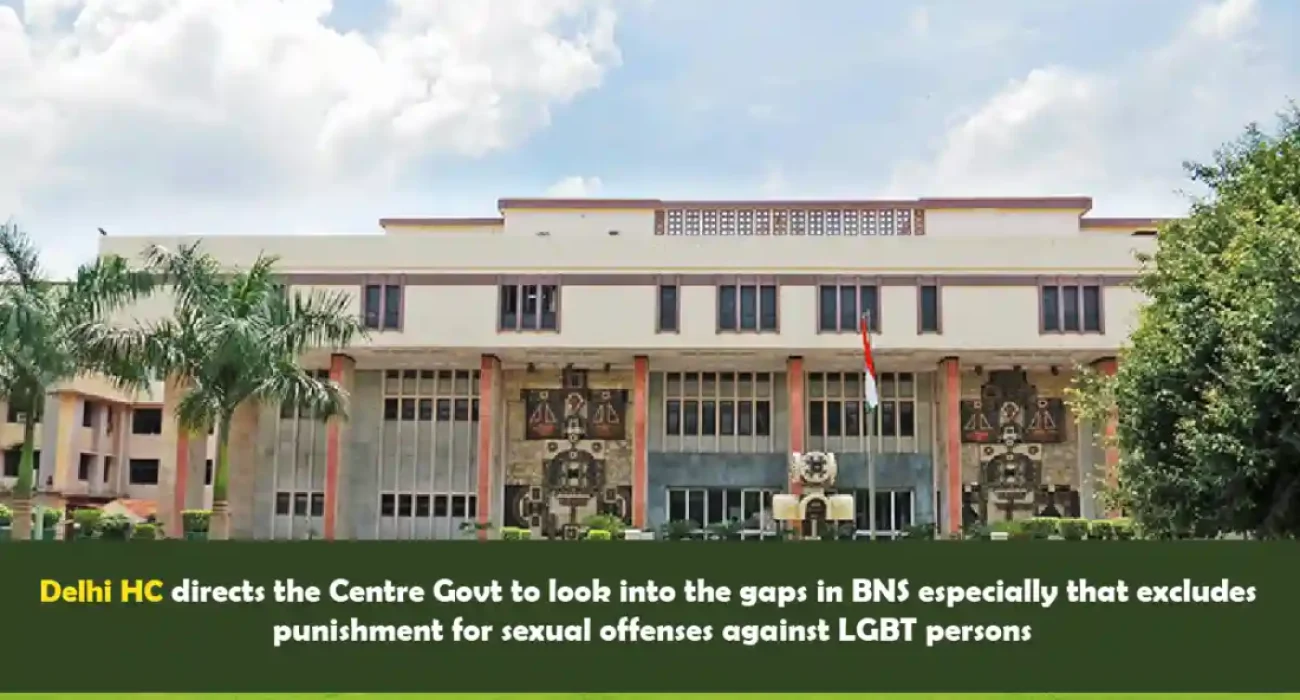

Table of Contents
ToggleThe Delhi High Court recently addressed a petition challenging the exclusion of a provision akin to Section 377 of the now-repealed Indian Penal Code (IPC), 1860, from the newly introduced Bharatiya Nyaya Sanhita (BNS). Section 377 of the IPC historically criminalized non-consensual carnal intercourse “against the order of nature” with any man, woman, or animal, a provision that, while partially decriminalized by the Supreme Court in 2018, remained applicable to cases involving non-consensual acts, minors, and bestiality. The petitioner, Gantavya Gulati, argued that the omission of such a provision from the BNS leaves a legal void that fails to protect individuals, particularly those within the LGBTQIA+ community, from non-consensual sexual acts.
Gulati’s petition sought the restoration of legal safeguards that were provided under Section 377 of the IPC. The petition emphasized the necessity of ensuring safety and dignity for all individuals, including the LGBTQIA+ community, by retaining a legal framework that addresses non-consensual sexual acts. The petitioner contended that the absence of such a provision in the BNS could lead to significant gaps in legal protection against serious offenses.
The Bharatiya Nyaya Sanhita, 2023, which replaced the IPC, did not include a provision equivalent to Section 377, despite the Parliamentary Standing Committee on Home Affairs recommending its inclusion. The Committee highlighted that, although the Supreme Court had read down parts of Section 377, it still applied to non-consensual carnal intercourse with adults, acts involving minors, and bestiality. The Committee argued that the exclusion of such a provision from the BNS failed to address non-consensual sexual offenses against all genders and acts of bestiality, thereby creating a significant legal gap.
The Delhi High Court, led by Acting Chief Justice Manmohan and Justice Tushar Rao Gedela, directed the Union Government to treat the petition as a formal representation and to expedite its consideration, ideally within six months. During the hearing, the government’s counsel, Anurag Ahluwalia, noted that the process of reintroducing the provision in the BNS would require extensive consultation with various stakeholders, including parliamentarians, and could not be hastily resolved. The court, however, suggested that an ordinance could be introduced if necessary to address the issue promptly. Justice Gedela further remarked on the necessity of maintaining legal provisions for such offenses, questioning whether the court could overlook incidents of non-consensual acts simply because they were no longer codified.
IAW resources
Browse our help directory